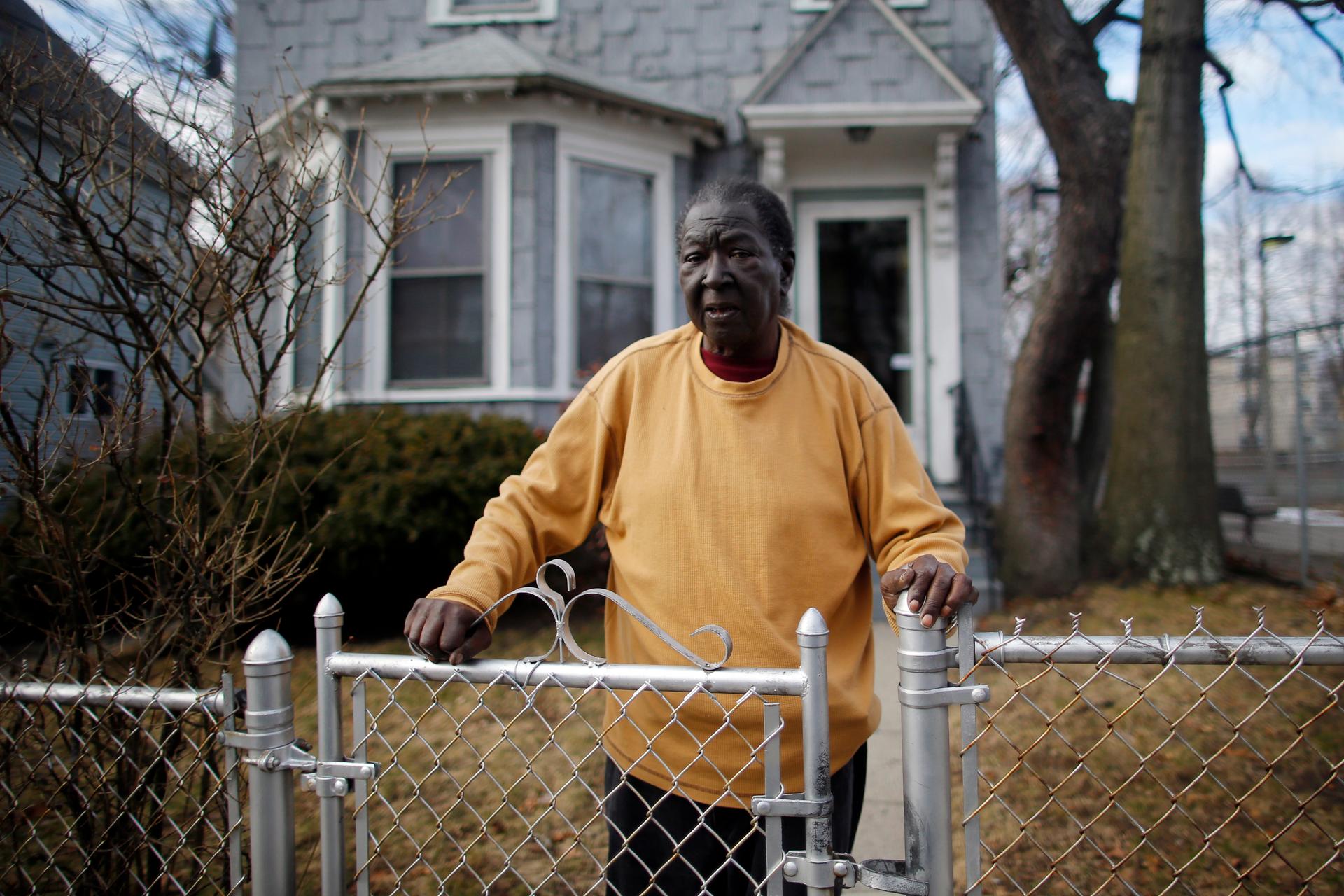For men with prostate cancer, being black is a deadly complication
William Rogers stands outside his house in the Dorchester neighborhood of Boston, Massachusetts March 5, 2013. Rogers cannot work because of his cancer treatments.
Black men are more than twice as likely as their white counterparts to die from prostate cancer.
It's the kind of survival gap we've seen before. Such black-white survival divides are also common for women with breast cancer.
“One of our challenges is we don’t really understand the biological underpinnings of the higher rates that we see in black men,” says Dr. Durado Brooks, director of Prostate and Colorectal Cancers for the American Cancer Society. “This is not just African American men, but men of West African origin around the globe have higher rates of prostate cancer and are more likely to die of the cancer.”
Brooks says black men are also more likely to be diagnosed with prostate cancer at an earlier age, and evidence suggests that prostate cancer can be more aggressive among younger black males.
“There are some things we don’t understand, but we do know that black men don’t get the same quality of treatment,” he says. “That can be because of insurance issues and lack of access. And it’s also that a lot of men are simply fearful and don’t pursue a diagnosis.”
According to Brooks, many men are hesitant to consent to a digital rectal exam, which can be used to identify abnormalities of the prostate or even prostate cancer itself. But there are other types of screenings available, like a prostate specific antigen (PSA) level blood test.
“It’s been shown that the PSA alone is an adequate approach to screening,” he says. “The PSA plus the digital rectal exam provides a little more information. But, quite frankly, even with that combination, these are not highly reliable tests. One thing that we clearly need are better screening tests.”
In addition to screenings, Brooks says many men who do find out that they have an elevated PSA level do not follow up with doctors for biopsies and other procedures because of a fear of cancer.
But that wasn’t the case for Elzie McCord, a professor emeritus of biology at the New College of Florida. Back in 1999, he pushed to have his PSA level tested at age 50.
“Being a scientist, I knew that blacks had a higher propensity for this disease than others,” says McCord. “I went to my [general practitioner] and asked for a PSA [test] following a digital rectal exam. He said I was too young, and that I shouldn’t take the exam. I told him that I really needed a baseline.”
Three years later, McCord went back to his doctor to have his levels tested again. It was at that point in 2002 that he was diagnosed with prostate cancer.
Though McCord says that surgery was the “gold standard” at the time, he did extensive research to identify the treatment that was right for him. He wound up undergoing prostate brachytherapy, a non-surgical radiation treatment, and some 12 years later, he is now living cancer free.
However, in some ways, McCord is the exception to the rule. There are several reasons black men put off prostate exams and follow up visits — McCord says that one of those reasons is the intimacy of the screening procedure itself.
“There’s another factor with the men that I talk to,” says McCord. “They ask me what’s involved in screening. I tell them about the digital rectal exam, and some of them say that no one is going to approach that part of their body. It appears that there’s some form of homophobia there, but it doesn’t make any sense to me.”
Though others in the black community may be hesitant, Brooks says that McCord has done everything right and he hopes others will follow in his footsteps.
“I applaud Mr. McCord because he’s done exactly what it is that we recommend that men do when they’re facing a prostate cancer diagnosis,” says Dr. Brooks. “They do their research. There are many men for whom surgery actually is reasonable and may be the best approach. But, all too often, men who are told they have cancer have the immediate response of ‘Get it out! Take care of it!’ They don’t take the time to recognize there are other treatment options.”
This story first aired as an interview on The Takeaway, a public radio program that invites you to be part of the American conversation.
The story you just read is accessible and free to all because thousands of listeners and readers contribute to our nonprofit newsroom. We go deep to bring you the human-centered international reporting that you know you can trust. To do this work and to do it well, we rely on the support of our listeners. If you appreciated our coverage this year, if there was a story that made you pause or a song that moved you, would you consider making a gift to sustain our work through 2024 and beyond?
